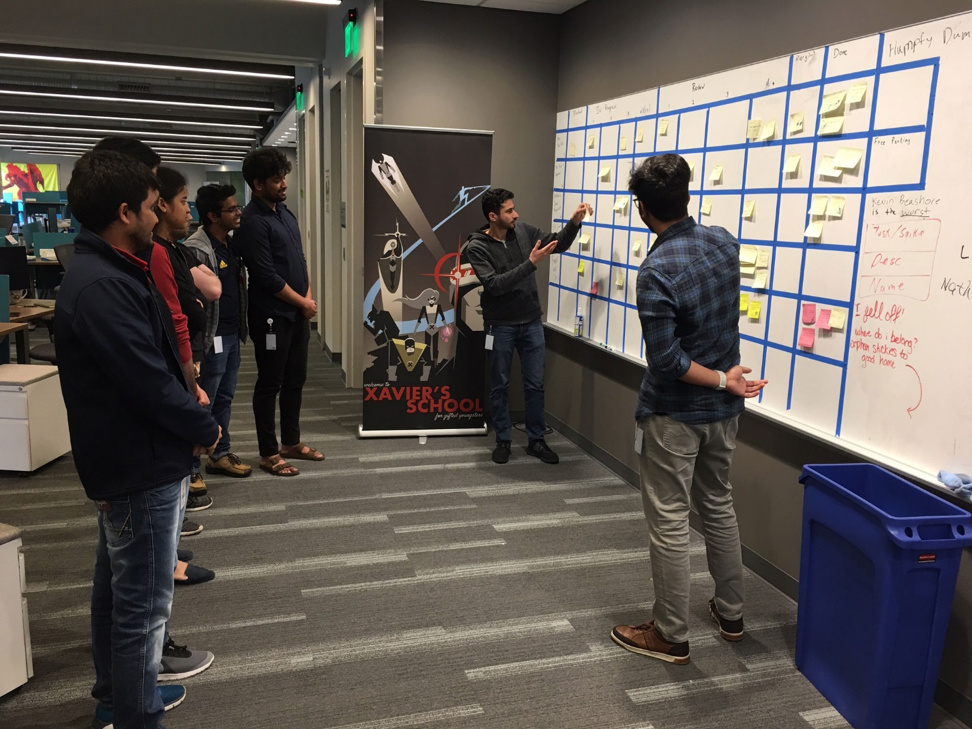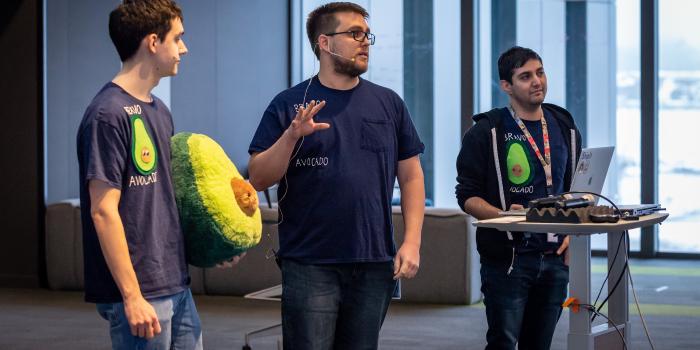DevAcademy Six Years Later
Cerner hires a lot of software engineers. In fact, we have hired over 1,600 engineers since our early career onboarding program, DevAcademy, went live almost six years ago. In particular, we use DevAcademy to onboard early career software engineers.
DevAcademy is a three part onboarding program built by engineers for engineers. The first part of DevAcademy is DevEssentials which covers a lot of the basics new engineers need to know about development ecosystems in our development environment. After spending a few days hearing from the software engineers who teach DevEssentials, our new hires move into DevCenter. DevCenter is a performance based, hands-on training opportunity. Engineers dig into real projects on small teams with the help of experienced mentors from teams across Cerner’s tech stack. They work through their projects, adding new functionality to existing applications, and honing their craft with the help of the full-time engineering instructors who keep DevAcademy running as well as their mentors. Over 700 engineers have participated as mentors providing feedback in code reviews, office hours, and scrum on more than 120 different projects. One engineer said of DevAcademy, “I was able to (and encouraged to) work independently, make decisions and find solutions without always having to seek approval for them. I also got feedback when those decisions turned out to be bad, so I could make better decisions in the future.” As soon as new engineers are writing, testing, and documenting their code in a way that meets the criteria Cerner has established for new hires, they go to teams across all areas of the company.
Engineering managers report that DevAcademy engineers are able to make meaningful contributions to their new teams very quickly, usually within two months. Before DevAcademy existed, it would often take six months before a new engineer could provide valuable contributions to their codebase. Engineers go to their new teams already equipped with knowledge of the process, tools, and best practices that are standard across engineering teams at Cerner.
After joining their teams, new software engineers very quickly dive into the work, learning the architecture and tooling as they go. When they do need additional training to help level-up their skills, they utilize the third part of DevAcademy, DevElectives. DevElectives focus on practices and tools engineers have identified as needs for their teams and architectures. Like DevEssentials, DevElectives are taught by engineers and provide opportunities to hear from more experienced people while digging into new technology.
In addition to providing an optimized orientation to writing code at Cerner, DevAcademy helps people cultivate relationships and networks that they will utilize throughout their careers. Many groups continue to meet regularly to discuss the work they are doing and get pointers from their colleagues. One Cerner associate said, “When I first joined Cerner, I had just moved and was alone in a new city. I was apprehensive, but excited. I had no idea that DevAcademy would be so formative to the friendships I created and networks I joined. DevAcademy was where I met my friends, some of whom I can already tell will be lifelong, where I met mentors who became the start of my network, and became inspired to be a mentor to continue expanding my network.”
In many ways, DevAcademy has become a staple of engineering at Cerner. It is where engineers have a safe space to learn and grow as they begin their career. It has become a proving ground for exploring new technologies and possibilities, and it gives more advanced engineers a way to improve their leadership skills. More importantly, it helps Cerner shape its engineering culture; focusing on the future state of engineering and cultivating an environment in which engineers are prepared to join a team and spread the knowledge they have gained during training to improve engineering as a whole.




